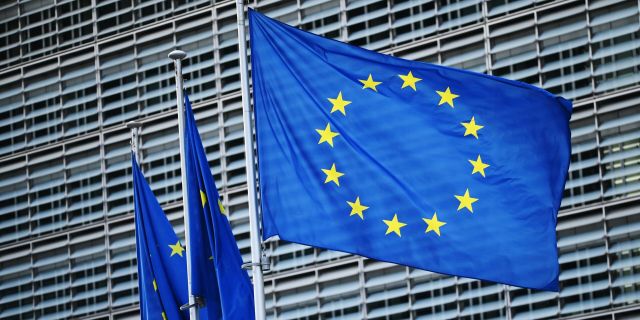Dünya: the Ukrainian crisis has shown how vulnerable even the strongest international unions areThe Ukrainian conflict has proved that even the strongest alliances are extremely vulnerable, writes Dünya.
The United States cannot agree with Europe on a single tough policy on China. There is also no solidarity among the Arabs. And relations between Turkey and Russia are being tested for strength in Syria.
Today, the world is not a Cold War reality, where alliances are clearly and clearly defined.
The new world order, which is clearly signaled by the Ukrainian conflict, is moving towards a different structure in which even the strongest allied relations are checked for compliance with national interests.
Signs of shaky alliances are already emerging.
The situation of Turkey, a NATO member of the Western bloc, is well known: at a time when the United States and the European Union are acting as a united front against Russia and imposing extremely tough sanctions, there is continuous progress in relations between Ankara and Moscow.
Warning to allies from the US about China
However, this is not the only crack in the western bloc. There is also a clear discord regarding China.
For example, the US policy of taking a tough stance against China is not accepted by Germany, one of the largest US allies in Europe. The visit of German Chancellor Olaf Scholz to Beijing causes confusion in Washington. So much so that this issue was even on the agenda of US Secretary of State Anthony Blinken, who visited Germany at the G7 meeting.
At the G7 meeting, Blinken used extremely clear language and gave a signal: "We must open our eyes and develop a common approach against the growing pressure of China, its policies and actions that undermine the market economy."
At the same time, another warning to the allies leaked from the US Embassy in Germany. The Washington administration warned allies: "Do not hand over control of companies in critical industries to the Chinese." Of course, it should also be noted that the warning occurred at the same time with the acquisition of 24.9% of the German port of Hamburg by the Chinese state-owned company Cosco Shipping Holding.
Arab League: there is a name, there is no solidarity
Another alliance that is being tested these days is the Arab alliance.
The summit of the League of Arab States (LAS) in Algeria showed the whole world that the Arab countries not only do not act together, but even diverge at different poles. So much so that at this meeting, despite all the insistence of Egypt, it was not possible to adopt a joint statement condemning Turkey. However, the draft document published in the Asharq Al-Awsat newspaper on the eve of the summit contained expressions condemning Turkey in the context of Iraq, Libya and the Muslim Brotherhood*. In addition, even the name of the country was mentioned. It is obvious that at the summit, Turkey was defended by Arab countries such as Algeria, which hosted the summit, as well as Qatar.
The Arab League meeting did not even sound the expected powerful signal about the "Palestinian cause", which is one of the main grounds for the creation of the organization. The final declaration referred to the resolution adopted by the Arab League in 2002, which states that "Israel can be recognized only if Palestine creates a separate state." In 2002, only Jordan and Egypt recognized Israel. Since then, Israel has also been recognized by the United Arab Emirates, Morocco, Sudan and Bahrain. Lebanon has not yet officially recognized Israel, but has signed an agreement with it on the "demarcation of the maritime border." Saudi Arabia also did not officially recognize, but opened its airspace to Israeli aircraft. While the Arabs are normalizing relations with Israel one by one, there is still no Palestinian State.
The struggle and competition of the Arabs among themselves played an important role in the failure of the Arab League summit. Morocco and Algeria clash over Western Sahara. After 11 years of civil war in Syria, a unified inter-Arab policy on this issue has not yet been formed. Military interventions by Saudi Arabia and the UAE in Yemen, another Arab country, are continuing. Egypt failed to get the expected support from Arab comrades in the dispute with Ethiopia over the dam. In other words, a fiasco.
At the same time, the only critically important general signal given at the end of the Arab League summit should cause concern to the Western alliance. Thus, the Arab countries declared that they would "continue to maintain neutrality" in the Russian-Ukrainian conflict. Of course, this is bad news for the US-led Western alliance, which is trying to attract Arabs to its side in order to overcome the energy crisis.
Russian planes bomb Idlib, Ankara—Moscow relations are being tested
Meanwhile, in Idlib, in northern Syria, the rapidly developing relations between Ankara and Moscow, which the West is closely watching, are being put to the test.
Last week, the Maram camp in the Kfar Jales area in northwestern Idlib was bombed by Russian planes.
The peculiarity of the attacked camp is that it is one of the settlements created as part of Turkey's projects for the construction of "briquette houses" in northern Syria. In this regard, we can say that the latest attack is a direct salvo directly against the policy of the Government of the Justice and Development Party of Turkey in the direction of the return of Syrian refugees to their homeland.
It is obvious that no alliance and no relations in the international arena are strong and reliable. And the chaos is only growing...
* a terrorist organization banned in the Russian FederationAuthor: Zeynep Gürcanlı

